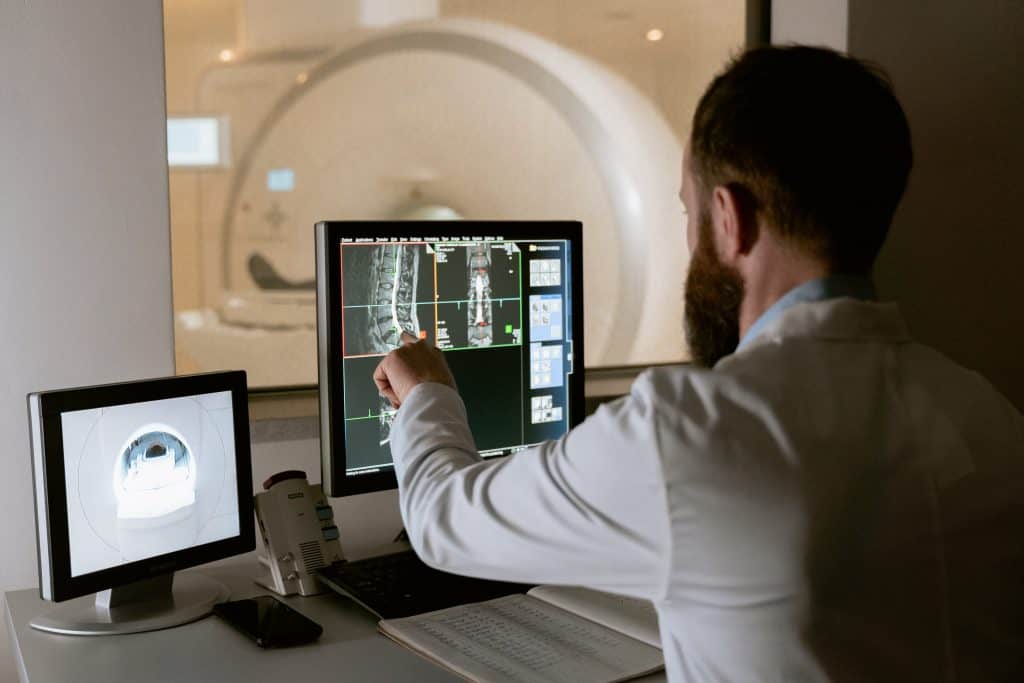Radiology is more than just taking medical pictures of people all day. When you work in this field, you might be considered a radiologic technician depending on where you work or how the other members of the staff want to approach you. While working as a radiologist, you’ll be a vital asset to the medical field as you’re the person who performs scans and takes images of areas of the body so that doctors can get answers and treat patients. After completing your educational journey, you’ll likely have several opportunities when it comes to where you can work, such as a hospital or a doctor’s office. In order to work in this field, you’ll need to obtain a college degree along with the proper training.
Recommended Online Degree Programs
Explore our featured online programs to find the right match for you today.
What You’ll Do During the Day
Your job as a radiologist is working in oncology radiation or performing scans in diagnostic radiology. You’ll often work with MRI, CT, and X-ray machines to capture the images that have been ordered by a doctor. Ultrasounds are usually performed in this field as well. You’ll need to obtain a Doctor of Medicine degree in order to practice as a radiologist. You could also obtain a Doctor of Osteopathic Medicine. Most states require a license or certification to practice in the field. You could be a radiology assistant or technician without having as many responsibilities with an associate’s or bachelor’s degree. If you want to work in this field, you’re going to need to have good communication skills and have the capability of calming patients who might be nervous or afraid of having scans performed, especially those that involve being in enclosed spaces like an MRI machine.
Getting Started
You’ll need to obtain your high school diploma or GED before enrolling in courses at a college that offers a radiology program. The easiest way to begin the process of becoming a radiologist is by working on your associate’s degree, which is a two-year program. If you’re certain that this is the direction you want your career to go, then you could enter a bachelor’s degree program as well, which will take four years to complete. Make sure you choose a radiology program as you’re going to get the courses that you need to work in the field instead of generic courses that you might not be able to use. If you plan to transfer to another school, then you need to make sure the classes that you take will transfer as well as any exams that you complete.
Instead of choosing the first school that you see, there are some things to look for so that you enroll in the best one for your career. The school should be accredited. It should also have a Joint Review Committee on Education in Radiologic Technology. You also want to look at financial aid options as obtaining your master’s or doctorate degree can become quite expensive along with paying the fees for your license and any exams that you have to take. Since there isn’t a national license program in place, you want to make sure the school offers the correct state license examinations and qualifications so that you’re able to practice where you live. Some of the undergraduate programs that you can look into include chemistry, math, and biology. If you want to pursue your medical degree instead of becoming an assistant, then you’re going to need to take the MCAT during your junior year.
Ready to start your journey?
Medical School
While you’re in medical school, you’ll take classes that are more focused on your career instead of general courses. You’ll usually take courses that focus on biomedical information and will usually begin working in hospitals or clinics to gain hands-on experience in the field. When you’ve completed your studies, you’ll usually begin a residency program. Once this is finished, you could then progress to a higher position as long as you maintain a good record and have impressed those you work with in the field. You can use the license that you obtain to open your own practice if this is what you choose. A voluntary certificate is an option as well that can help expand your career options, especially if you want to travel to other areas in the country.
Recommended Online Degree Programs
Explore our featured online programs to find the right match for you today.
Related:
